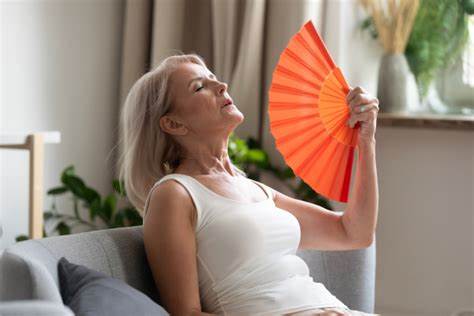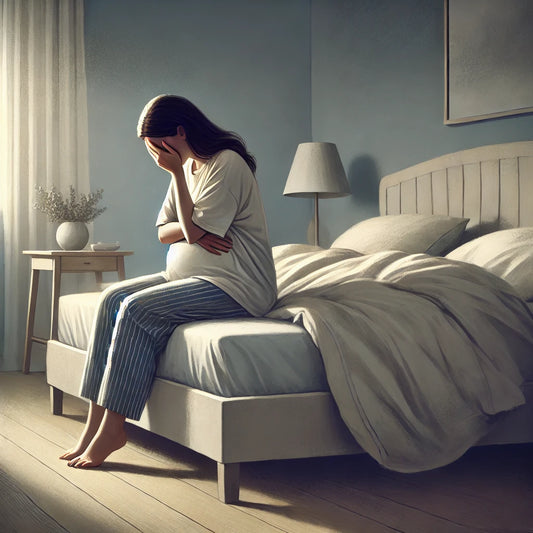Menopause, also known as "the change," is a natural phase in a woman's life that typically occurs between the ages of 45 and 55. It marks the end of the fertile years and is characterized by a decline in hormone production, particularly estrogen and progesterone, in the female body.
Emotional and Physical Changes
Emotional Mood Swings: One of the most common symptoms during menopause is mood swings. Fluctuations in hormone levels can lead to feelings of irritability, anxiety, sadness, and depression. These mood swings can make some women feel less cheerful and difficult to enjoy life.
Sleep Problems: Hormonal changes can also lead to sleep problems, such as insomnia or night sweats. Disrupted sleep can result in fatigue and irritability, making it challenging to find joy in life.
Weight Gain: Many women notice weight gain during menopause, especially around the abdomen. This may be partially attributed to a slowed metabolism and a decrease in muscle mass as one gets older.
Physical Changes: During menopause, women often experience physical changes such as reduced bone density, dry skin, hair loss, and joint pain. These changes can contribute to the feeling of aging and weakness.
Depression: The hormonal imbalance and emotional stress of menopause can make some women more susceptible to depression. Seeking help is crucial if you experience symptoms of depression.
Sexual Relationship During Menopause
In addition to these challenges, menopause can also impact the sexual relationship between partners. The hormonal changes that occur, such as a decrease in female hormones like estrogen and progesterone, can affect sexual health.
What Can You Do?
Fortunately, there are ways to address the challenges of menopause and improve your quality of life:
Hormone Replacement Therapy (HRT): Consult with your doctor about the possibility of HRT to stabilize hormone levels and reduce symptoms.
Lifestyle Adjustments: A healthy lifestyle can help reduce many symptoms. Regular exercise, a balanced diet, and stress management can contribute to a better mood, weight management, and improved sleep.
Supplements: Some women find relief from symptoms by taking supplements such as calcium, vitamin D, and omega-3 fatty acids.
Therapy and Support: Consider talking to a therapist to address emotional challenges. Support from friends and family can also be valuable.
Medication: In some cases, medication may be prescribed to treat symptoms like depression or severe hot flashes.
Improvement in Sexual Health: During menopause, the decrease in female hormones can lead to vaginal dryness and reduced sexual arousal. Intimate toys can assist in stimulating arousal and enhancing sexual health by increasing blood flow to the genital area.
Alternative Therapies: Some women find relief from symptoms through acupuncture, yoga, or other alternative therapies.
It's important to remember that menopause is unique for each woman. What works for one may not work for another. It's essential to discuss your specific situation and needs with a medical professional.
Navigating menopause, with all its physical and emotional challenges, can be a demanding period. However, with the right support, lifestyle adjustments, and medical assistance, you can navigate this phase of your life and improve your well-being. Remember that you are not alone, and help is available to help you transition through this period more smoothly.





